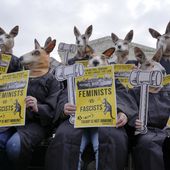CARACAS, Venezuela (AP) — Venezuela could nationalize four projects in the oil-rich Orinoco River basin if the state is unable to negotiate a majority stake with the foreign oil companies that run them, the finance minister said yesterday.
The state could nationalize the four projects in the Orinoco oil belt “if the negotiations with the foreign oil companies that control them fail,” Finance Minister Rodrigo Cabezas said in an interview on state television.
His remarks clarified that the government is still seeking to obtain majority control through talks with the companies after President Hugo Chavez announced plans this week to take control of “strategic sectors” in telecommunications, power, oil and natural gas.
Separately, Mr. Cabezas told the Venezuelan newspaper El Universal that as the state nationalizes C.A. Nacional Telefonos de Venezuela, or CANTV, “shareholders will receive the fair price of their value of their shares.”
Asked whether the call for nationalization includes top power company La Electricidad de Caracas, owned by the Arlington, Va., company AES Corp., Mr. Cabezas said, “It includes the entire electricity sector.”
Venezuela’s government has been in talks since last year with foreign oil companies that operate heavy crude upgrading projects in the eastern Orinoco area, seeking a government-controlling stake through the formation of new “mixed companies.” Such joint ventures have already been formed in other parts of the South American country, and most companies have shown a willingness to continue investing under new terms.
The six firms that currently control the Orinoco projects include British Petroleum PLC, Exxon Mobil Corp., Chevron Corp., ConocoPhillips Co., Total SA and Statoil ASA.
Mr. Chavez is seeking special powers from the National Assembly to allow him to enact “revolutionary laws” by decree, and Mr. Cabezas told state TV they would likely include reworking the country’s banking laws and reforms for insurance companies.
“Next week we will decide for sure what laws fall under the president’s special powers,” he said.
Venezuela has strict controls in place that limit currency trading, and Mr. Cabezas noted that the price of the dollar in the black market has risen to historic levels but said there are no plans to devalue the Venezuelan currency, the bolivar.
He said in Mr. Chavez’s new six-year term, the government will seek to raise taxes on companies with hefty profits but will allow private companies to continue to operate freely.



Please read our comment policy before commenting.